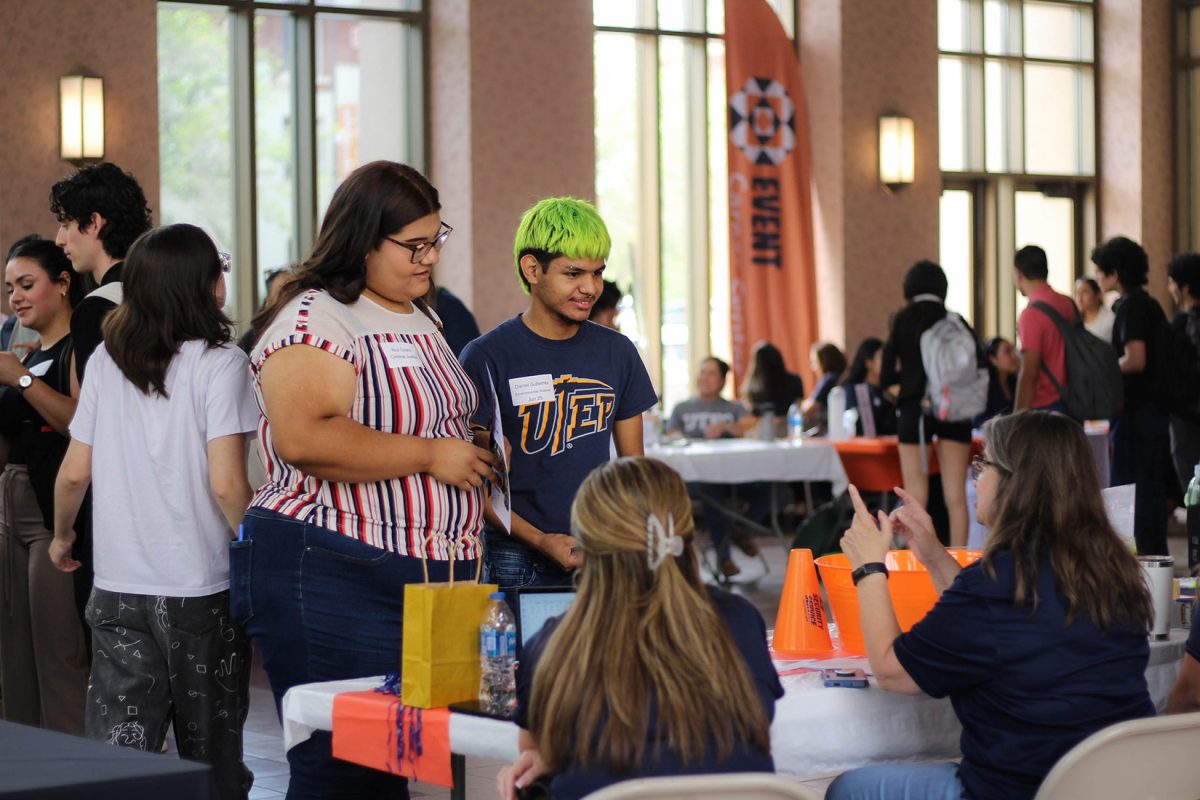UTEP’s Environmental Health and Safety Department makes Basic Life Saving (BLS) training accessible to staff and faculty for free.
Their partner, ProAction, works alongside UTEP to provide these classes.
Elizabeth Thornton, a BLS instructor at ProAction, is one of many instructors determined to provide training in basic life support such as CPR and first aid. She said knowing BLS techniques is essential in one’s daily life.
“Most cardiac arrests happen at home, and a majority of the time people don’t know what to do in those situations,” Thornton said. “Unfortunately, with all the shootings going around it’s beneficial to learn these skills to help anyone around you.”
The American Heart Association stated that in the United States, cardiac arrest causes approximately 300,000 to 450,00 deaths each year. They also stated that globally, cardiac arrest claims more lives than influenza, pneumonia, auto accidents, HIV, firearms, house fires, and three of the most common cancer diseases.
The ProAction instructors said survival rates for cardiac arrest are increased if intervention begins within the first few minutes but drop by about 10% with each minute longer. Additionally, ProAction instructors said CPR, if administered immediately, can double or even triple a person’s chance of survival.
Healthcare workers, law enforcement, and UTEP faculty and staff attended the class, all wanting to add a basic life support certification under their belt, because of the big impact it has on saving a person’s life.
Parts of the class included AED, or automated external defibrillator training, in which attendees were presented with an AED kit and were shown how to properly use each item inside. A section of the class was dedicated to teaching CPR, where participants were taught how to perform the lifesaving technique on both adult and infant mannequins. Attendees also learned how to stop a bleed and someone from choking.
“BLS is just a lot of very critical points that you need to know, (however) if you’re not doing it right, it’s not beneficial,” Thornton said.
According to the American Heart Association, on average, BLS can help 50,000 people each year survive medical emergencies such as cardiac arrest.
“I think that it is very important to get down all the specific points of it, you want to make sure you do pass, and you do get it right,” Thornton said.“ BLS is something a lot of people need to learn and may end up having to do in certain situations.”
Upon completing the course, attendees had to pass the BLS exam to become certified in basic life support skills such as CPR and AED. To receive a course completion card, students must pass both skills tests and an online exam with a score of at least 84%. To stay certified, the certification needs to be renewed every two years after being issued.
The next basic life support class being held on campus is set to take place on August 21 from 8:30 am to 1:00 pm. To register for this class head over to the UTEP Environmental Health and Safety Department website.
Israel Garcia is the multimedia editor and can be reached at [email protected].







